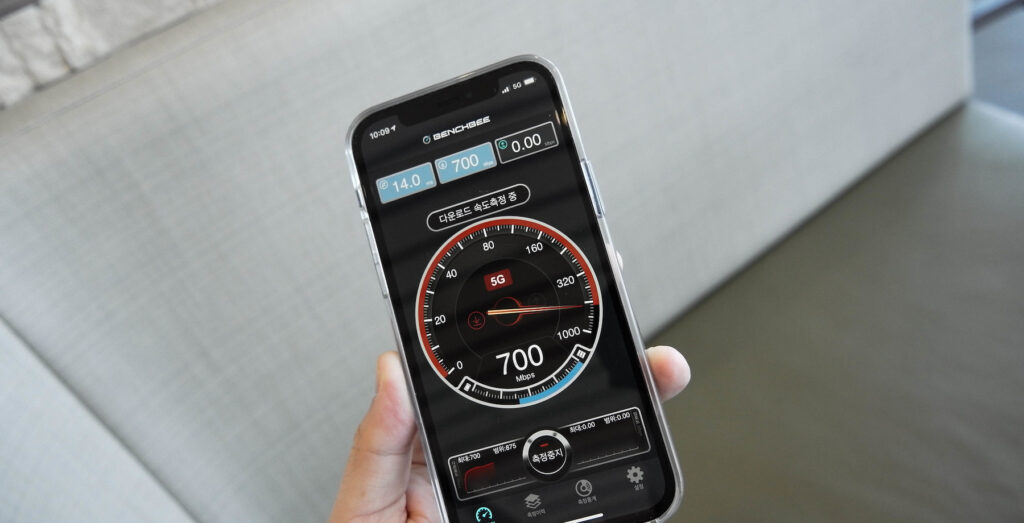
Superfast Internet Takes Over Liverpool, What Does This Mean For You?
Fresh off a new batch of investments, Liverpool now rates among the best digitally connected cities in the UK. With significant rollout seen in both 5G and fibre, Liverpudlians are spoilt for choice, but how much does this choice really matter? Looking at the different forms of internet available in Liverpool, what the different speeds mean, and how they can be used, we want to explore what’s available, to see if it’s right for you.
Liverpool’s Place in the High-Speed UK
Deep into the UK-wide plan to roll out ultra-highspeed internet, called Project Gigabit, the entire country is well on its way to fulfilling accessibility goals. As of May 2022, 68% of the UK had access to gigabit-speed internet, on target to meet an 85% rollout goal by 2025.
This government investment is in addition to private investment by companies in local areas. Liverpool has been a prime recipient along these lines, seeing a recent £39 million investment by Netomnia which has connected 130,000 homes already. Combined, these efforts have led to a current state of coverage of gigabit access of 87.6%, well above the national average.
Mobile and Wired Solutions
When looking at ultrafast internet, there are two main systems to consider, wired and wireless. Wired ultrafast internet comes from fibre optic cable, usually shortened to just fibre. This system relies on data transmission via light, rather than using the older and slower existing copper lines that DSL solutions leverage.
Since fibre requires special new technology, installation can require digging a trench to bury a cable, and installing new hardware on a wall in your house to act as an access point. Since internet service providers are looking to further their coverage, they will often cover the cost of installing the first fibre lines in a home.
Wireless is a little trickier since it’s tied into more rapidly shifting mobile technology. When we talk about ultrafast wireless internet, we tend to refer to what is called new fifth-generation tech, more commonly called 5G. This is a new standard which offers more potential speeds than 4G, but it’s not always a straight upgrade.
5G can offer much faster speeds than 4G, and it can allow ten times as many users per connection point, but its shorter wavelength can cause problems. In simple terms, 5G signals won’t travel as far as 4G, and they can’t penetrate buildings as well. This means many 5G towers need to be installed for complete coverage, which slows down rollout. It also means that 4G will continue to act as a companion to 5G, especially in more rural areas where it’s not feasible to install many 5G towers.
Giving Context to the Numbers
When looking at speed, gigabit is generally regarded as the standard to aim for in ultrafast solutions. Older ADSL and 4G systems, for reference, would often operate at around 40-90 Mbps, less than a tenth of gigabit speed. For any older readers out there, your old dialup modem could only download at around 56 kilobits per second, which is around 18,000 times slower than a gigabit connection.
For real numbers, we can look at how fast these different connections could download a file one gigabyte (not gigabit) in size. If you don’t know how big this is, a typical music CD is 70% of a gigabyte.
Downloading a one-gigabyte file on an old dialup 56k connection would take over 42 hours, even with a good-quality connection. On a far more modern 60 megabit per second (Mbps) ADSL or 4G connection, this download would take about 130 seconds. Downloading at full speed on a gigabit connection, the process would complete in 8 seconds. For those keeping track, that’s about 42 hours faster than the 56k connection.
Do You Need the Speed?

SKTelecom 5G (CC BY-ND 2.0) by TheBetterDay
While it’s impossible not to be impressed at how far data transmission speeds have come, whether or not you need an upgrade right now is another question entirely. Before looking into use cases, you should know that ISPs will constantly drop their prices over time, and often not tell long-time subscribers. This means you might be able to upgrade to a gigabit connection at the same cost as your current plan, so if this is the case, an upgrade could have no downsides. If this isn’t you, then keep reading.
How much speed you need for the internet depends on what you use your internet for. Consider if you’re the type of person who just uses the internet to browse and engage with lightweight interactive entertainment which will work perfectly fine at speeds of 10 Mbps.
Common more demanding uses could be found in video streaming, especially for those who consume high or ultra-high-quality content. 4K video streaming on a system like YouTube, for example, will require around 20 Mbps to maintain video quality. Higher frame rates at lower qualities will also use more data.
On the highest end can be gamers and those who download a lot of data. The extra speed here will mostly manifest as faster downloads, but the lower latency (signal travel time) of high-speed solutions will also make the experience better for the user.
One final thing to keep in mind is that bandwidth is essentially shared between all users on a single connection point. This might not be a problem on a mobile where it’s only you, but it can be an issue on a shared home network. Three people streaming and one person downloading could cost well over 100 Mbps, for example.
Make no mistake, fibre in Liverpool will eventually replace the existing slower options, it’s just a matter of time. Whether you need to make the change if you can’t get it for cheap right now, that’s another question entirely. Weigh your uses carefully, consider how much data you’ll use, check price changes, and eventually you’ll be able to get a faster connection at the same or even a lower cost than what you pay now. Until then, be thankful the days of dial-up and no mobile internet are long behind us.







